- Details
- Written by Ministry of Defense Spokesperson's
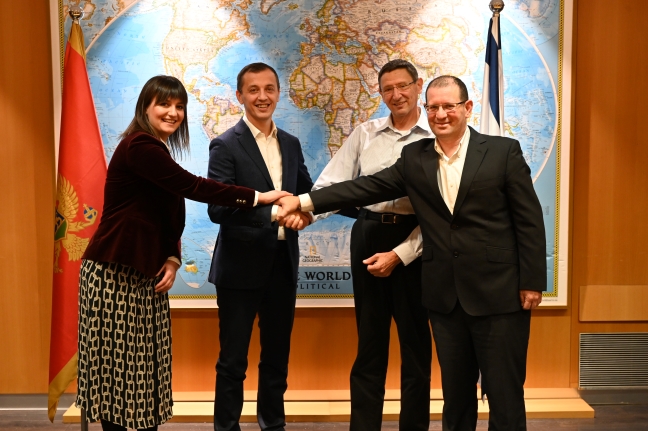
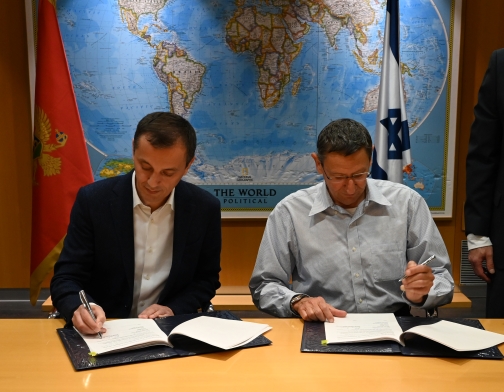

1. (Right to left) Secretary of Defense, Udi Adam and Montenegro's Minister of Defense, Fredragag Boskovich. Credit: Ariel Hermoni, Ministry of Defense
2. (Right to left) Chief of Civet Yair Coles, Director General of the Ministry of Defense Udi Adam, Minister of Defense of Montenegro and Head of Montenegro Procurement Credit: Ariel Hermoni, Ministry of Defense
3. Imaging of shooting positions. Credit: Elbit Systems
- Details
- Written by Silvia G. Golan
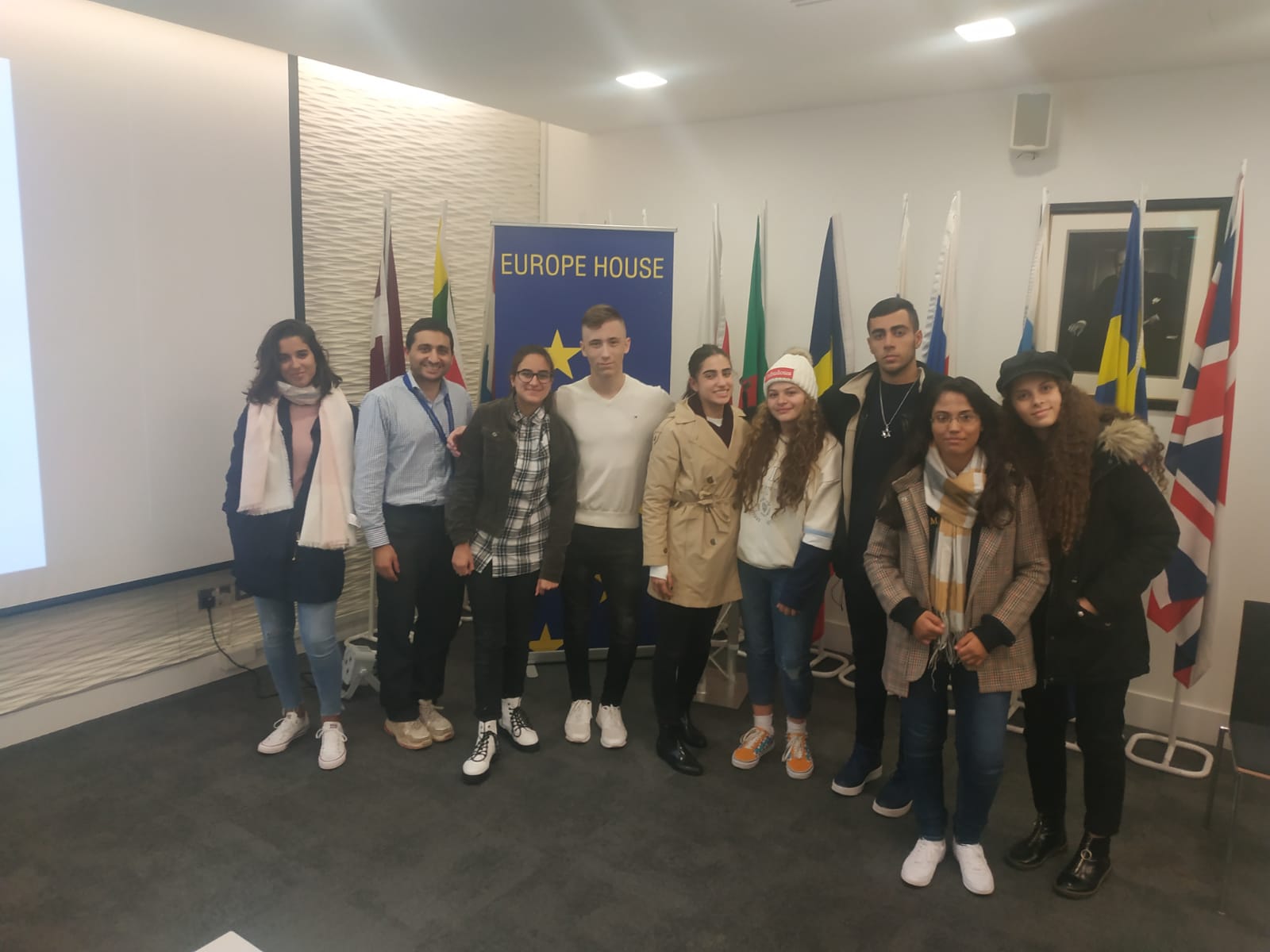
The delegation began on November 14th with a visit to the Treasures collection of the British Library, where ancient religious texts, Shakespeare, and the Magna Carta are all on display. The students then went to Bentham House, where they had an engaging discussion on public international law, and the laws of war, with Professor Kimberley Trapp. The delegation then met with several Middle East experts at Chatham House for a discussion about peacebuilding, and the “Israel and Palestine: Beyond the Stalemate” project. Afterwards there was a two hour workshop at Europe House, which focused on Brexit. There the delegation also met with youth from different countries through the Asfar organization. Finally, the day concluded with a briefing at the Behavioral Insights Team, where the students learned about behavioral economics, and its impact on policy-making.
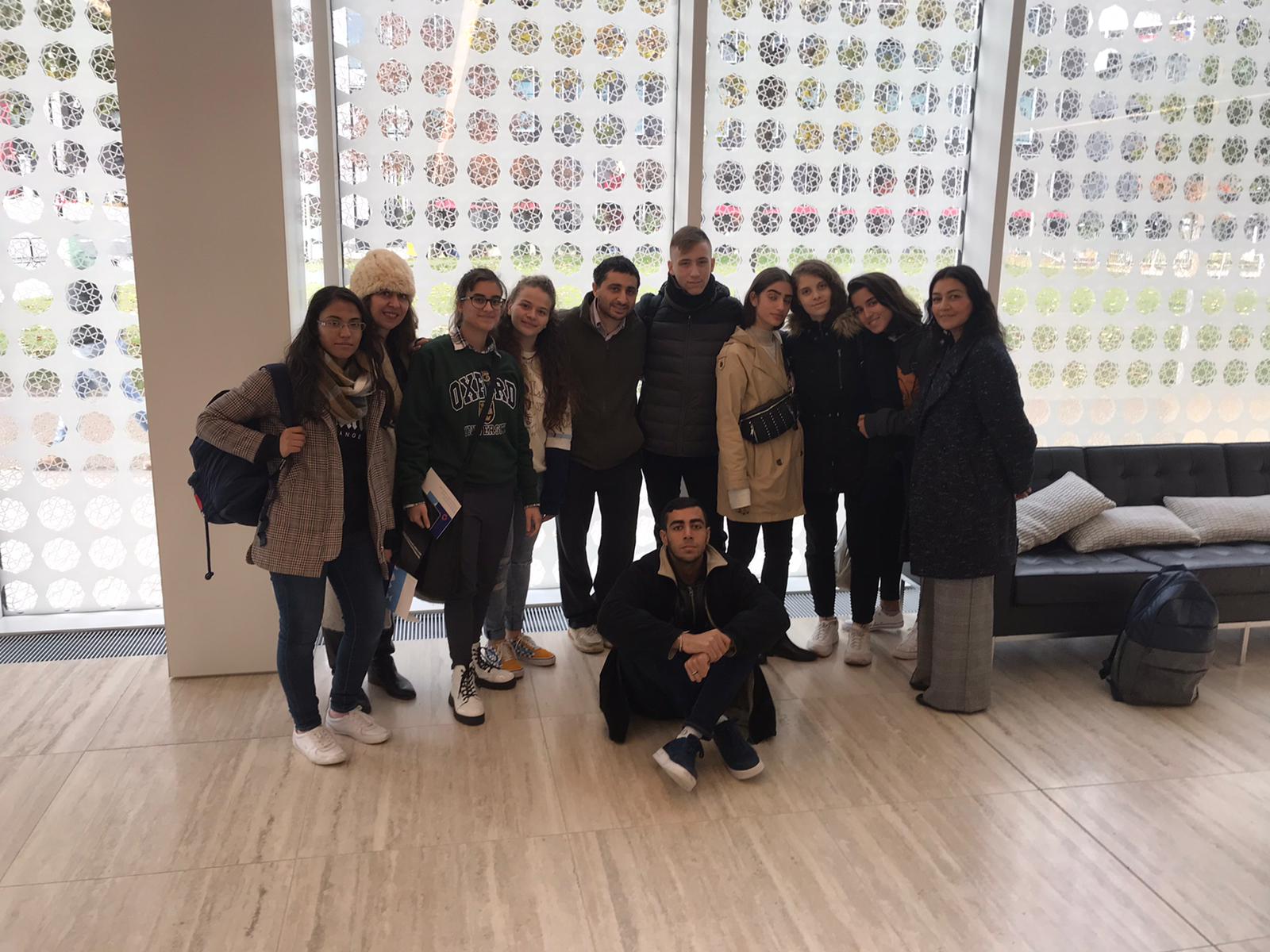
On Friday the delegation was photographed Fran Monks as part of the Hug Project. Then the delegation joined the Muslim Educational Center of Oxford for Juma’a prayers, where they heard the khutba from Dr Taj Hargey and had a lively discussion on contemporary Islam. That evening the delegation joined the Jewish community at the University of Oxford for shabbat dinner.
From Friday afternoon until Sunday afternoon the students engaged in their respective committees, representing a range of countries such as Australia, China, Russia, the United Arab Emirates, and the United States. At the closing ceremony on Sunday Teba Massalha (UAE) received a Best Position Paper award in OPEC, while Eliran Ben Yair (China) received an Honorable Mention award in CSW.
Back in London the delegation met with peacebuilding experts at Conciliation Resources, and visited the Embassy of Ecuador, where they met Ambassador Jaime Marchan-Romero, and the Embassy of Kosovo, where they met Counselor Imer Berisha. They also visited one of the largest Hindu temples outside of India, and heard a piano concert by Rachel Starritt at the St. Martin in the Fields church. The delegation also received a private tour of the Institute of Ismaili Studies, including a visit to the Agha Khan Centre Gallery, featuring work by contemporary Egyptian artist Bahia Shehab. The delegation was lucky to be guided by curator Esen Kaya, and joined by academic and musician Dr. Vanessa Paloma. Kaya told Diplomacy that she was very interested in “hearing about the students debate programme and the passionate messages they had conveyed in Oxford. They all liked our building, the Islamic gardens and were amused with reading some Arabic text within specific art works and gardens around the building.” She added that it was interesting to see the responses of young leaders to topical contemporary culture as well as traditional religious texts.
The delegation also found time to visit the National Gallery, the Museum of Natural History, and the British Museum, featuring the Rosetta Stone and Egyptian mummies and other treasures. They finished the delegation by meeting with Jaron Soh to learn about his efforts to help refugees and displaced persons support themselves using traditional handcrafts, contemporary technology, and global economics.
Lareen Habashi from Iksal High School told Diplomacy that this was “a special experience that I did not have before. We discussed different topics concerning the whole world, we met people from different ages, different positions and fields from several countries around the world.”
Shahaf Navon, from Ben Gurion Comprehensive school in Petah Tiqva, added that the delegation “helped us to personally evolve and not only to get to know the other side but to befriend them, (and the) meetings with different NGO was a wonderful experience.
Maya Qawasmi from Al Qassemi high school in Baqa added “we had an amazing week, visiting different places and meeting with people who gave us so much information about several subjects. We had a fun time in the museums, and finally three incredible days in Oxford conference.”
The upcoming Debate for Peace delegations will be to Yale MUN and Johns Hopkins MUN in the US.
Photo Credit: Fran Monks and Debate for Peace
- Details
- Written by Steven Aiello
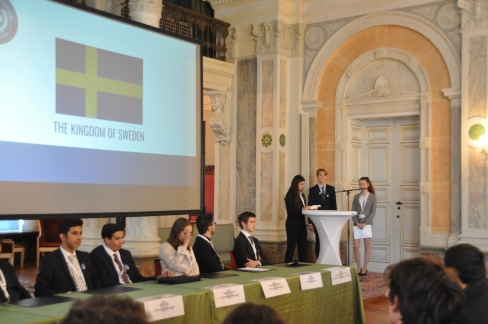
A Debate for Peace delegation participated in the Model UN of Malmo for the first time in November 2019. Six students, from four cities around Israel and representing three religions, traveled to Malmo for the MUN conference, interfaith and intercultural programming in Malmo, and a day of briefings and study sessions in Stockholm.
The students represented Pakistan and Sweden in a variety of committees, dealing with topics ranging from women’s empowerment to combating narcotics cultivation, to the conflict in the Kashmir region. They spent several days debating and negotiating with students from dozens of ethnic, religious and linguistic backgrounds at MUN of Malmo, hosted by the Malmö Borgarskola.
During the conference, the delegation joined several local interfaith initiatives as well, including a discussion on Promoting pluralism and tolerance in a democracy, with speakers from the Buddhist, Christian, Druze, Jewish, and Muslim communities, hosted by the Mahmood Ahmadiyya mosque in Malmo; a text-based discussion about “The Chosen People” through the Jewish-Muslim Amanah project, and an interfaith shabbat dinner with Christian, Druze, Jewish, and Muslim participants. The delegation also participated in an interreligious dialogue workshop run by the religious social-democrats in Skane-Blekinge.
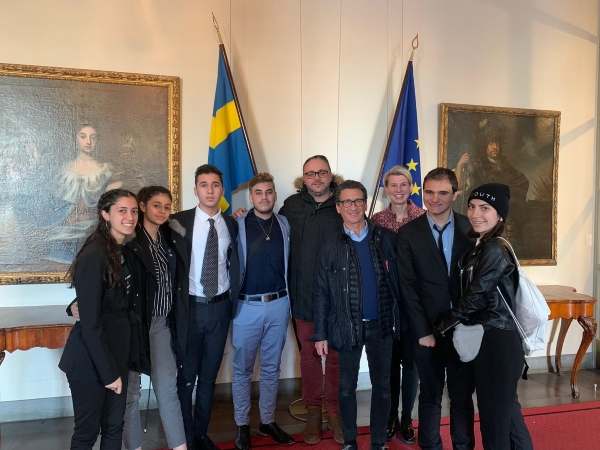
Following the conference, the delegation traveled to Stockholm. There they met with John Robbins at the US Embassy in Stockholm; Ambassador Sotos A. Liassides at the Embassy of Cyprus; Anna Henderson Young at the Foreign Ministry of Sweden; Otto Widmark at the Olof Palme International Center for a discussion on international aid and development, and Dr. Mark Klamberg, professor of international law at Stockholm University, to learn about international humanitarian, human rights, and criminal law.
Yuval Cohen participated in the delegation from Kadima High School, and he told Diplomacy that this was “A great experience that I will never forget”, which “exposed me to different cultures and people all around the globe...an experience that every teen should experience!” Yara Katish, from Maghar High School,called the delegation a “once in a lifetime opportunity with unforgettable memories”, adding that the most interesting part of the trip for her was meeting different people in different positions in the political and educational fields, and “hearing advice and important things that will help us in our near/far future.”
Debate for Peace Director Steven Aiello expressed special gratitude to the Embassy of Sweden in Tel Aviv to the MUNOM organizers and hosts, to Imam Riwan Ahmad Afzal, and to Adrian Kaba and Peter Vig from the Interreligious Dialogue workshop, for their assistance in the delegation.
Photo Credit :MUNOM and Debate for Peace
- Details
- Written by Communicated by the MFA Spokesperson
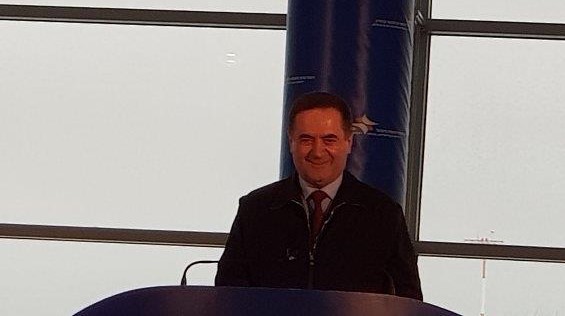
FM Katz: The MFA has actively worked for a long period of time to promote the renewal of the relationship. The departure of President Morales and his replacement by a government friendly to Israel allows the fruition of the process.
Minister of Foreign Affairs Israel Katz:
“I welcome the announcement of the government of Bolivia regarding its intent to re-establish diplomatic relations with the state of Israel. This will contribute to the strengthening of the State of Israel’s foreign relations and its standing in the world.
“The Ministry of Foreign Affairs has actively worked for a long period of time to promote the renewal of the relationship, also with the help of the Brazilian president and minister of foreign affairs, with whom I recently spoke on the subject at the UN Conference in New York.
“The departure of President Morales, who was hostile to Israel, and his replacement by a government friendly to Israel, allow the fruition of the process.”
Photo Silvia Golan
- Details
- Written by Steven Aiello
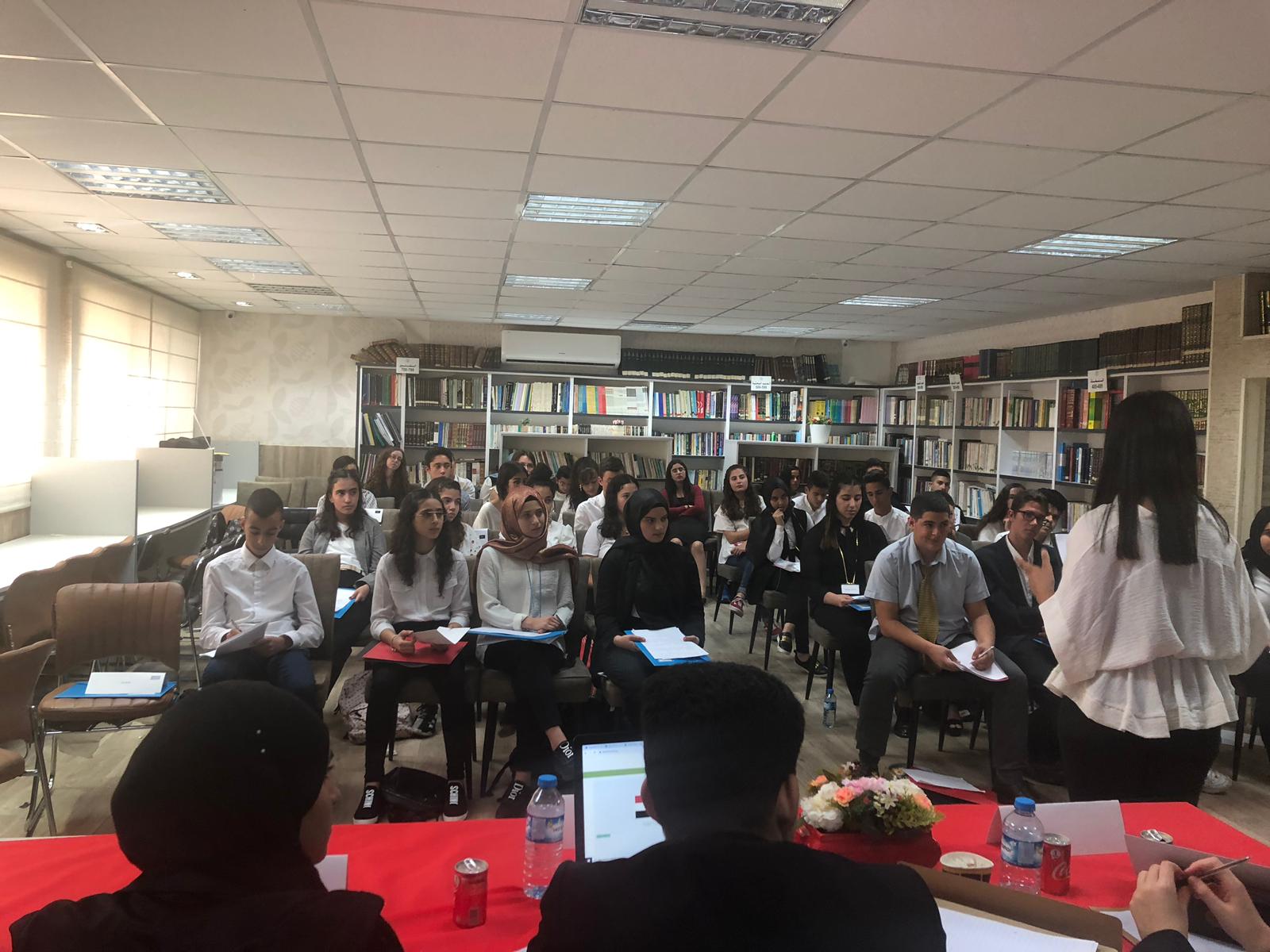
Kufr Qassem Comprehensive School hosted the first ever Model UN conference in the city’s history on Thursday, November 7, with 150 students from schools all over Israel competing. The conference theme was “Society”, and committees dealt with the challenges of racism, violence against women, minority languages, and the unrecognized Bedouin villages.
The students arrived in the morning to a red carpet flanked with flags of UN member states, balloons, and of course, refreshments. It was a doubly festive day, as the school was marking Mawlid--the birthday of Muhammad, as well as the MUN. For many of the Jewish students this was their first visit to an Arab school, and thus an especially memorable learning experience. In fact, for most students this was their very first MUN.
Reaching resolutions in the different committees proved quite challenging, with intense debates, and some very close votes. But by the end of the day each committee had produced well thought out draft resolutions that they could then vote upon.
At the end of a long day of learning, the delegates filed into the sports hall for the closing ceremony. After some spontaneous dancing, the delegates were called to order. Mr. Abed Frij, Qassem MUN director, welcomed the students and guests, and thanked those who had helped to make the day such a success, and in particular, the students. Then Waseem, one of the Kufr Qassem students, gave an inspiring speech about youth leadership, expressing his own pride at what he had witnessed.
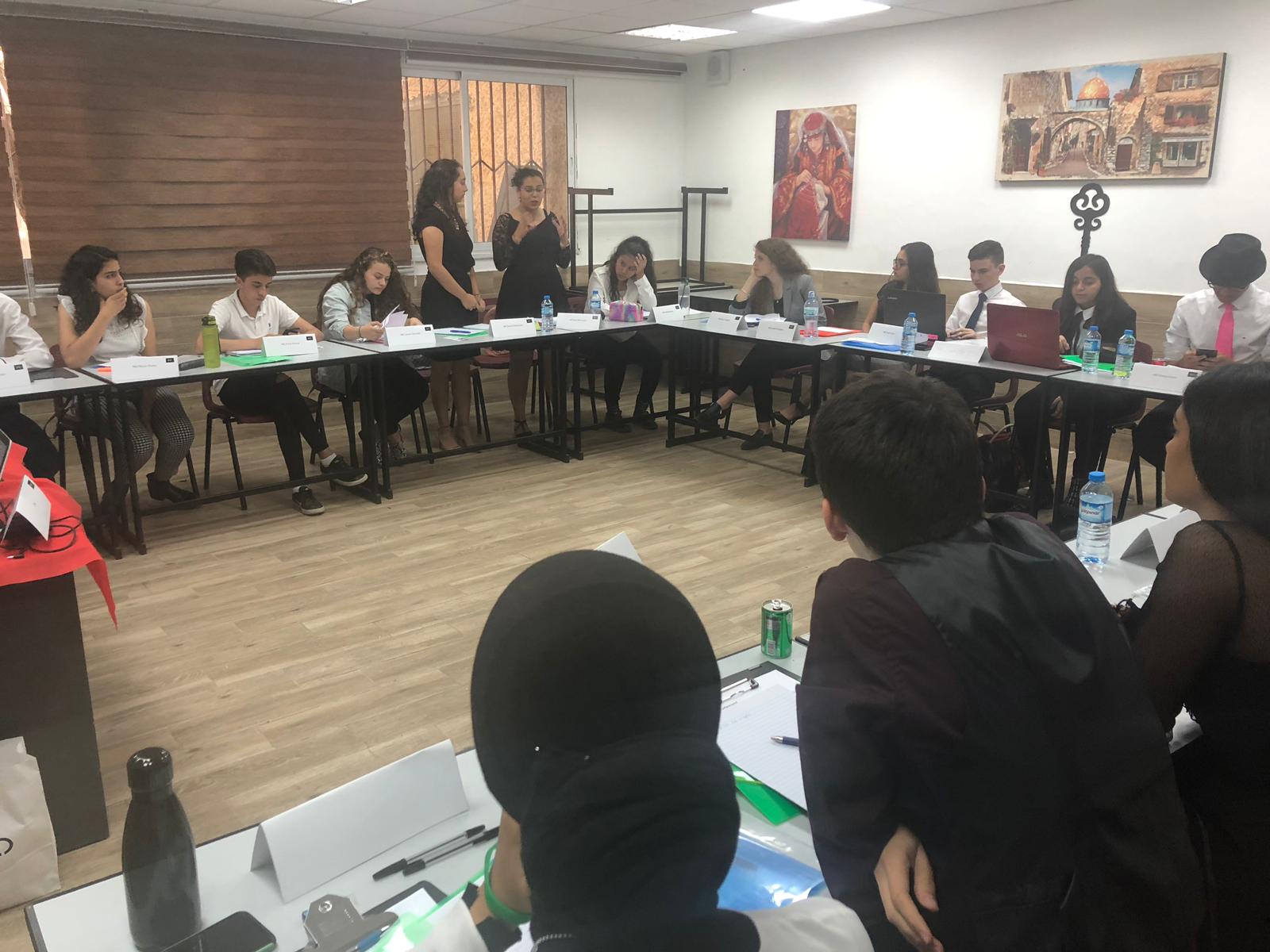
Finally, it was time for the awards. In the UNGA committee, Roy Amsalem and Jawan Shalata (received Outstanding Delegate awards, and Moshe Rothstein and Tamir Shnaer won Best Delegates. In the UN Women committee, it was Jana Sayed Ahmed and Eyal Bala who won Outstanding Delegate, while Niv Blitz and Deyar Abu Rahal were the Best Delegates. In UNESCO, which dealt with endangered languages, Hani Altoree and Teba Massalha were Outstanding Delegates, while Lishy Hason and Tamir Hurwitz were recognized as Best Delegates. Finally, in the advanced Knesset committee, Amit Ram and Eisa Hammodi were Outstanding delegates, while Eliran Ben Yair and Shahd Hammodi were the Best Delegates.
All in all it was a successful day of conflict resolution, problem-solving, and intercultural learning for everyone involved. Rachell Rothstein, from Modi’in, explained that “It was very interesting to discuss the issue of the unrecognized Bedouin villages in the Negev. It was also amazing to work with each other in the committee and better understand both sides of the issue and find a resolution which passed. Mr. Frij, the conference director, told Diplomacy “QassemMUN was the first big English event in Kfar Qassem. [An MUN conference like this] does not happen very often and we are proud that we managed to pull it off with the help of Steven. We look forward to always be a part of this wonderful team that works hard to bring people together Arabs and Jews. In addition, our students experienced what does it feel to attend a real conference with many Native speakers.”
The conference was part of the Debate for Peace activities.
The next MUN conference in Israel will be ATIDMUN on November 20-21.
See more, including the national MUN schedule, on DebateforPeace.org
Photos









